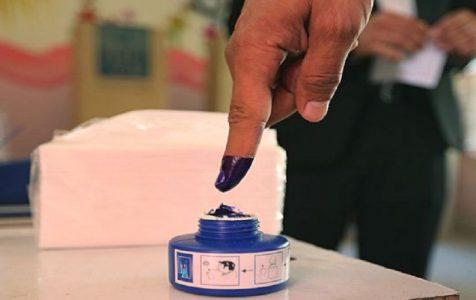
ISIS threatens Iraq’s first election since government claimed victory over militants
Iraqi voters go to the polls Saturday for their first election since the government claimed victory over the Islamic State. But the militant group is still a threat and claimed responsibility for Monday’s shooting death of a candidate.
Faruq Al-Jubouri, 42, a father of three running for parliament with the non-sectarian National Alliance, was gunned down because the Islamic State said he was an atheist.
“Faruq was an agriculture professor interested in plans for our future, not a typical vote-buying politician offering jobs and goodies,” said his cousin Omar Ali Al-Jubouri, 33. “He wasn’t handing out mobile phone company gift cards or giving cows and sheep away to get elected.”
The Islamic State, also known as ISIS, is threatening to disrupt the parliamentary vote and undermine Iraq’s fragile democracy.
“Anyone who participates in the vote will be considered an infidel, a disbeliever deserving of death,” ISIS spokesman Abul-Hassan Al-Muhajer told an extremist website.
ISIS released a video last week showing the point-blank execution of two get-out-the-vote campaigners in Al-Tarmiya, a town 35 miles north of Baghdad. The group also threatened to attack polling stations.
The warning by Al-Muhajer likely falls on deaf ears, even among ISIS’ Sunni supporters, said Hisham Al-Hashimi, an Iraqi scholar on Islamist groups.
“The real problem that afflicts ISIS is their loss of their base,” said Al-Hashimi. “Their beliefs and methodologies have less and less traction in a community that has enjoyed a gradual return of normal daily life and is now focused on working seriously for Iraq’s reconstruction and stability.”
Ahead of the election, Iraqi authorities have detained dozens of terror suspects, restricted vehicle traffic and deployed thousands of police and army troops to guard polling stations.
“The Baghdad Operations Command is stopping the movement of trucks typically used in mass explosions and motorcycles used for targeted killings as part of a comprehensive plan to stop terrorism,” said Iraqi Maj. Gen. Jalil al-Rubaie.
Saturday’s national election will be the fourth since the 2003 U.S.-led invasion that toppled Saddam Hussein. Nearly 7,000 candidates are vying for 329 parliament seats. No single alliance appears likely to win a majority, so a coalition would need to be worked out to form a new government.
Leading the most powerful alliances are Prime Minister Haider al-Abadi, former prime minister Nuri al-Maliki and Hadi al-Amiri, a former minister of transport who also led paramilitary fighters against ISIS.
Al-Abadi is seeking re-election, and his Victory Alliance is building on last year’s victory against ISIS. He took office in September 2014, nearly four months after the Iraqi army collapsed as ISIS took over nearly a third of the country. After three years of fighting, he is credited with defeating ISIS and restoring the nation’s military.
Al-Maliki, who was prime minister for eight years, remains a powerful figure despite having stepped aside in disgrace when the Iraqi military crumbled in the face of ISIS.
Al-Amiri, a commander of Shiite militias that helped roll back ISIS and have ties to Iran, is viewed as a viable alternative to al-Abadi, the current prime minister.
Source: USA Today





